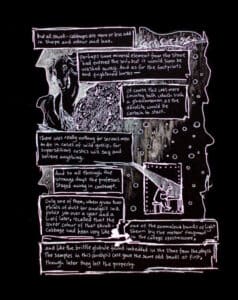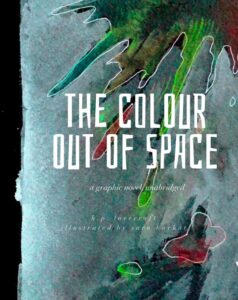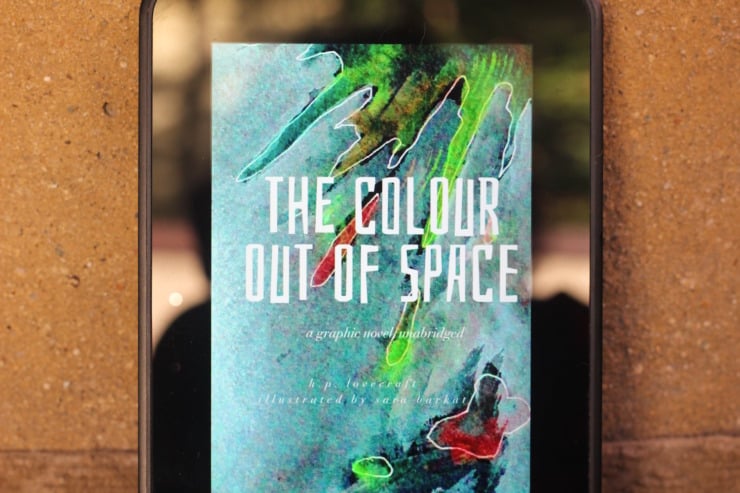What Is Cosmic Horror?

In cosmic horror, human science epitomizes humanity’s pride in the rational and the belief that everything can be understood, compartmentalized and controlled. Instead, this very undertaking will discover what is beyond its power. This preoccupation within cosmic horror will also show through characters’ disregard for historical or oral tales leading to them being unprepared to face the irrational. Examples of the irrational might be cosmic entities from outer space or the deep sea, beings that have no clear motive or, generally, any interest in human affairs. Instead liminal places become forces that exert themselves upon the person within them. Rather than a traditional struggle between good and evil, characters struggle with knowledge of the inadequacy of any attempt to impose meaning upon life. All attempts to structure or systematize will be faced with the fact that something remains beyond the limits, that in fact the structure and system is only a human invention placed upon the world through the lens of our understanding.
Unlike other gothic fiction which tends to focus inward, cosmic horror—which still plays with the gothic sense of claustrophobia—creates that sense through the use of great scale, using vastness (of nature, entities, systems or cause and effect) to convey a sense of powerlessness and aloneness for the characters. As with other gothic and horror genres it will dismantle cultural underpinnings and their sense of what is normal, right, or expected. In cosmic horror, instead of finding a benevolent God, you will find alien beings that operate on a level through which communication is impossible and which are utterly indifferent to you.
The most horrific events will happen in the most familiar places, in your own community or home. Characters who face the cosmic horror become inevitably and completely alienated from the sense of safety that ordinary places usually hold, places which become haunted and made other through the character’s experiences, leaving them with a sense of being unmoored. These characters may become isolated both through their internal sense of alienation and through rejection from the society around them.
The entity in cosmic horror is only the largest example of the symbolic impossibility of communication. In cosmic horror your experience of the world cannot be conveyed to others because language fails to accurately express reality, or even if it does not completely fail then it is not believed.
Cosmic horror exists in a state of tension between the incompatibility of diametrical opposites. Cutting-edge science is combined with dreams and dreamlike narratives, there may be unusual geometry that cannot be expressed, visceral and primordial colors, textures, music, and a heightened attention to all the senses to the extent that it becomes something overwhelming or painful. Cosmic horror is engrossed in the unmaking of the structural. If there is body horror and the grotesque, it is in service of creating a sense of nothing being reliable. However, it is in the realm of psychological horror that cosmic horror’s true interest lies: particularly in where a character’s sense of internal self loses its cohesion.
Characters will be forced to face the indifference of the universe both through their seeing of realities beyond earth and the beings therein, but also through the complete apathy which other people around them will regard them. In cosmic horror, human connection is fraught, generally meaningless, and anyone who has not faced the horrors will turn a blind eye to their effects and label those who have seen them as madmen, while those who have seen the horror are so shaken by their experiences that they may never be able to partake in society again, set apart as they are by the burden of knowledge that cannot be accepted.
—Sara Barkat
You Might Like Gothic Horror
The Yellow Wall-Paper: A Graphic Novel
The Strange Case of Dr. Jekyll and Mr. Hyde, Illustrated
The Picture of Dorian Gray, Illustrated
Read a summary of the cosmic horror tale The Colour out of Space, by H.P. Lovecraft


